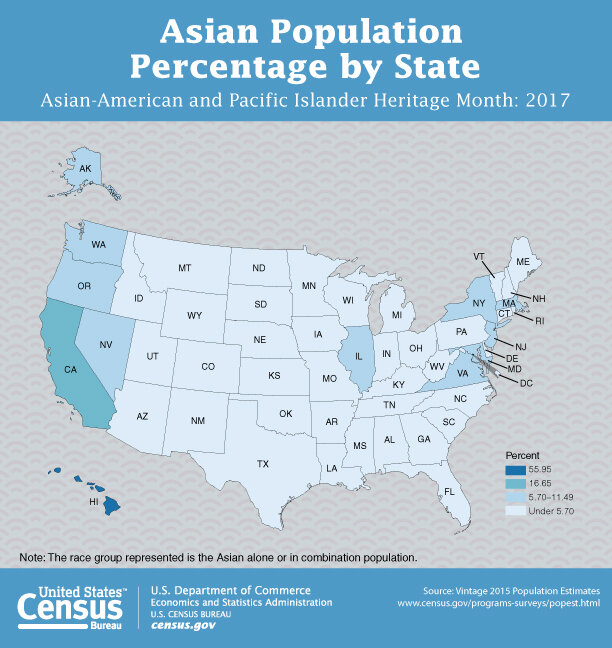COVID-19 Adds to Hawaii’s Existing Challenges in Achieving Accurate 2020 Census Counts
by Joyce Lee-Ibarra, JLI Consulting LLC
These days, it’s easy to forget that anything is happening in the world aside from the coronavirus and its impacts. But critical government activities continue to move forward, some of which will affect Hawaii and local communities for years to come. One of these activities is the 2020 US Census. As we have described previously, its results will profoundly shape Hawaii’s future federal funding streams and congressional representation. Furthermore, census data underpins key decisions throughout all sectors of the state. COVID-19 is adding to Hawaii’s existing challenges in achieving accurate census counts.
2020 Census field operations and timelines disrupted by COVID-19
Although COVID-19 hasn’t impacted the ability of respondents to submit the Census survey online or by mail, it has affected the Census Bureau’s field operations. These operations, which include face-to-face visits that help achieve accurate counts of hard-to-reach populations (including undocumented populations and the homeless) or those in group living circumstances (such as nursing homes or prisons), are on hold until June 1, 2020.
The coronavirus has also disrupted the Census Bureau’s typical timelines for completion. Census survey responses will continue to be accepted until October 31, 2020, three months later than originally planned. The Bureau has also requested that Congress extend by four months the December 31, 2020 legal deadline to deliver apportionment counts, which divide seats in the US House of Representatives.
People who moved due to COVID-19 may need to modify their responses to the census survey. College students displaced from dorms or off-campus housing should respond as though they reside at their usual housing, since that is where they would normally be. But for others who are temporarily living somewhere other than their usual residence, their census responses will depend on their plans for returning to that residence—plans which, for some, are uncertain.
Hawaii currently ranks #42 in the nation in census self-response rates
Although it remains to be seen whether the coronavirus will impact Hawaii’s overall response percentage for the 2020 Census, current figures show the state lagging behind the US as a whole. As of May 18, 2020, Hawaii’s self-response rate was 54.2 percent, over five percentage points behind the national self-response rate of 59.6 percent:
Hawaii ranks 42nd in the country for census self-response rates. Self-response percentages for the counties encompassing the four major islands of Hawaii vary widely: 62.0 percent for Honolulu; 44.4 percent for Maui; 42.7 percent for Kauai; and 33.5 percent for Hawaii.
Hawaii’s Asian communities will benefit from more census education and outreach
Although Asian Americans saw a 72 percent growth in population between 2000 and 2015, making them the fastest growing racial or ethnic group in the US, they have historically been undercounted in the census. Hawaii has the highest population percentage of Asians in the US, with nearly 56 percent identifying as Asian alone or in combination with another racial group; California has the second highest percentage, at about 17 percent:
Given this high proportion of Asians/Asian Americans among Hawaii residents and patterns of historical undercounting, we anticipate our state will encounter challenges in achieving accurate population figures for the 2020 Census.
As a group, Asian Americans exhibit greater concerns about participating in the census than others. A study conducted by the Census Bureau found that only 55 percent of Asian Americans indicated they were “extremely” or “very” likely to complete the census form, compared to 69 percent of whites, 65 percent of Latinos, and 64 percent of blacks. The same study found that 41 percent of Asian Americans expressed concern that their answers to the census “will be used against them,” compared to 16 percent of whites, 32 percent of Latinos, and 35 percent of blacks.
An analysis of the study’s findings indicate that immigrant status, rather than a general distrust of government or socioeconomic status, is likely to be a key reason for these concerns. Asian Americans are the only racial group in the US that is majority foreign-born; among immigrants who have arrived in the US since 2010, Asian Americans are disproportionately represented. In addition, about 32 percent of Asians living in the US are non-citizens, and they account for 14 percent of the country’s undocumented people.
About 35 percent of Asian American households have limited English proficiency, a status that correlates negatively with intention to participate in the Census. This finding has implications for Hawaii, since 25 percent of the state’s population speaks a language other than English at home; of those, 49 percent speak English “less than very well.”
This combination of immigrant status and limited English proficiency among Asians and Asian Americans suggests that Hawaii would benefit from targeted census education and outreach to these communities. And once the Census Bureau’s field operations are restored, in-person interviews in these community members’ native language will help ensure accurate population counts and appropriate representation that will ultimately lead to much-needed support for community services and organizations.
Make sure you’re counted in the 2020 Census! If you haven’t already submitted a census survey, click here to respond to the census now. Do your part to ensure Hawaii gets its share of federal funds, resources, and congressional representation.
Joyce Lee-Ibarra is principal of JLI Consulting LLC and a consultant to the Hawaii Data Collaborative.



